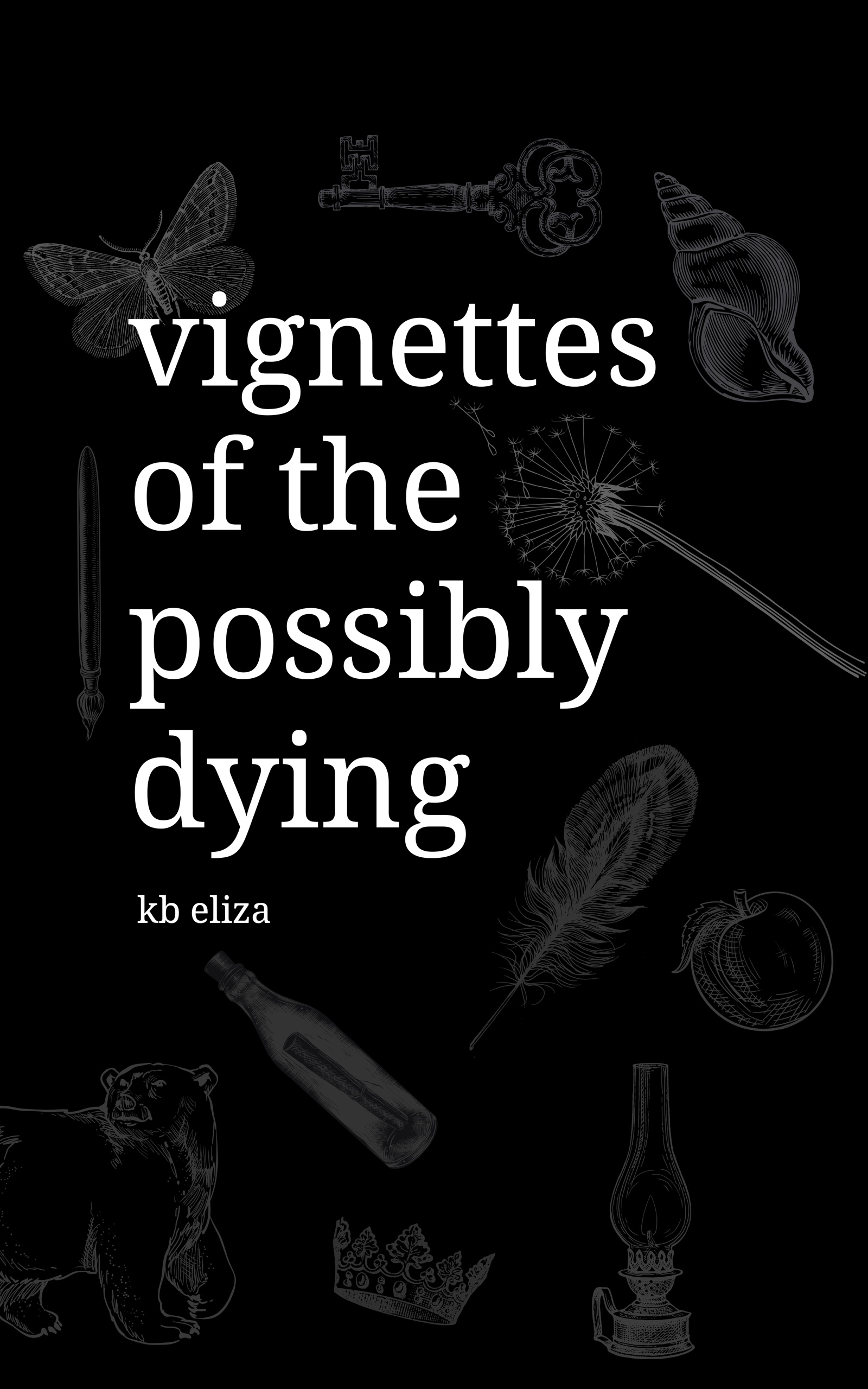VIGNETTES OF THE POSSIBLY DYING is a great title, witty and postmodern-sounding, with echoes of Iain Reid (“I’m Thinking of Ending Things”) and David Foster Wallace (“Brief Interviews with Hideous Men”). The book is, according to the author KB Eliza’s website, her “debut novel.” She calls it this on her Facebook page as well. As it turns out, VIGNETTES is a “novel” in the way a typical undergraduate English student uses that word: meaning any book. There is no discernible plot, no identifiable characters. Most of its 182 “chapters” are a paragraph or two. Some are a single sentence. Here’s how Chapter 2 begins: “When a great sadness rises to the top, it invades the space where the skin is thin.” Sounds like a Buddhist koan, right? Except Buddhism is about acceptance. Openness. Surrender. This chapter continues with expressions of pain and anger and concludes with the cry “The battle begins.”
Pain suffuses Eliza’s “novel,” but so does humor, as in Chapter 20, which can be quoted in its entirety: “Please don’t outsource your love and transcendence. I have waited so long.” In another chapter, Eliza writes of the “stoush of life” (“stoush” is Australian slang for “fight”). She also engages in some cool wordplay, as when she says in Chapter 90 that “control is ceased render-less.” It’s tempting to call VIGNETTES a set of inspirational musings, but there’s little to inspire in, say, Chapter 118: “Knowledge is the next coveted jewel. People will mock it, strangle it into submission and even kill for it.”
Maybe the best way to describe this book is a collection of prose poems, filled with imagery (dragons and castles show up often), bitterness, and wonder. The bitterness isn’t overwhelming, and the wonder isn’t aimless. The two combine to deliver a message of determination. Earlier, this reviewer stated that the book has no characters, but this isn’t quite true. It has a narrator who sees things clearly, acknowledging the world’s pain without succumbing to fear of it. In that sense, the book does inspire. Emily Dickinson wrote “Tell all the truth but tell it slant,” and Eliza takes this advice to heart. Her language is often ambiguous but stick with it. Receptive readers will find it a challenging but satisfying read.
KB Eliza’s VIGNETTES OF THE POSSIBLY DYING is a hard-to-classify book which couches truth in ambiguous language. Receptive readers will find it a challenging but satisfying read.
~Anthony Aycock for IndieReader


